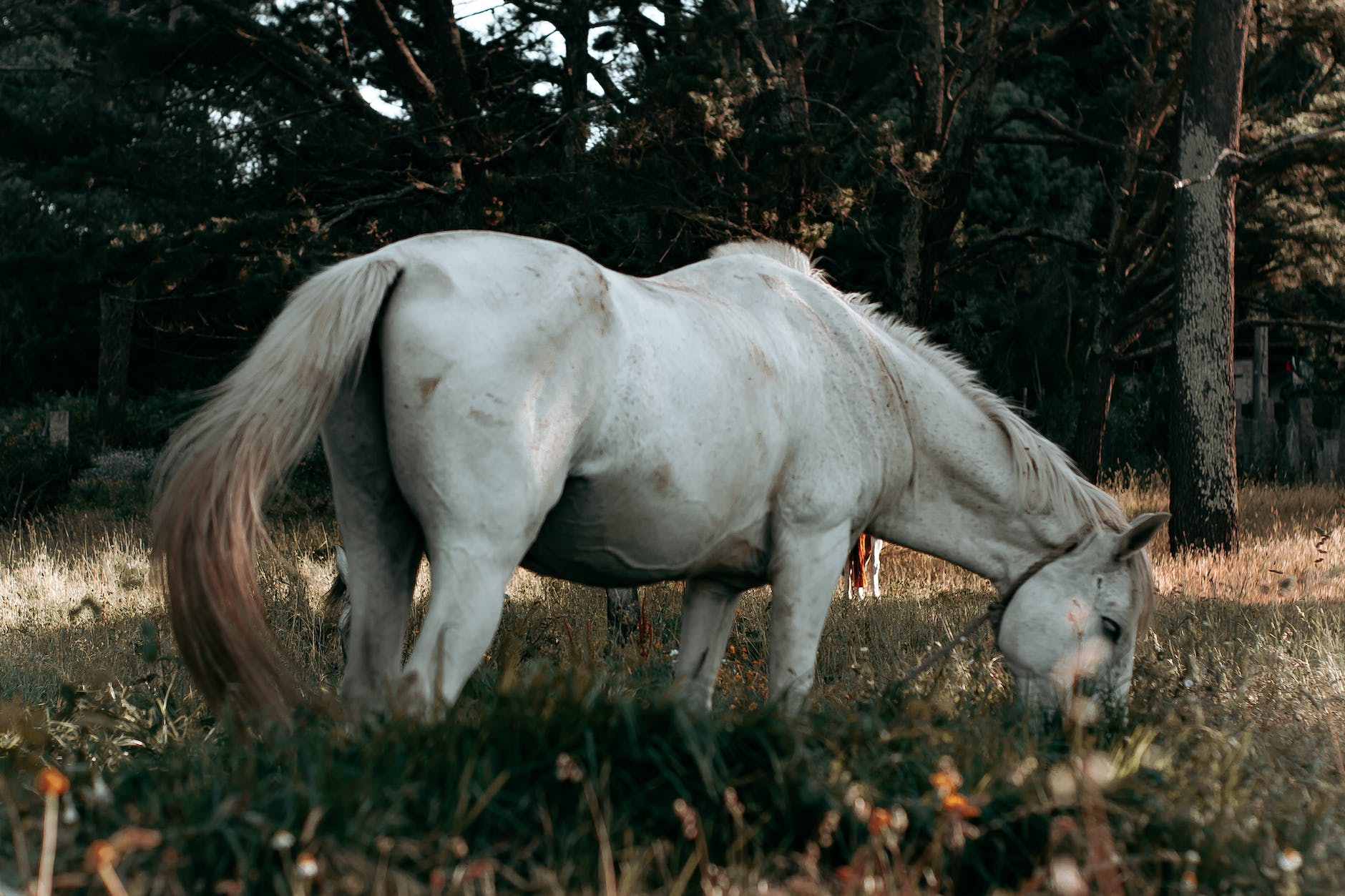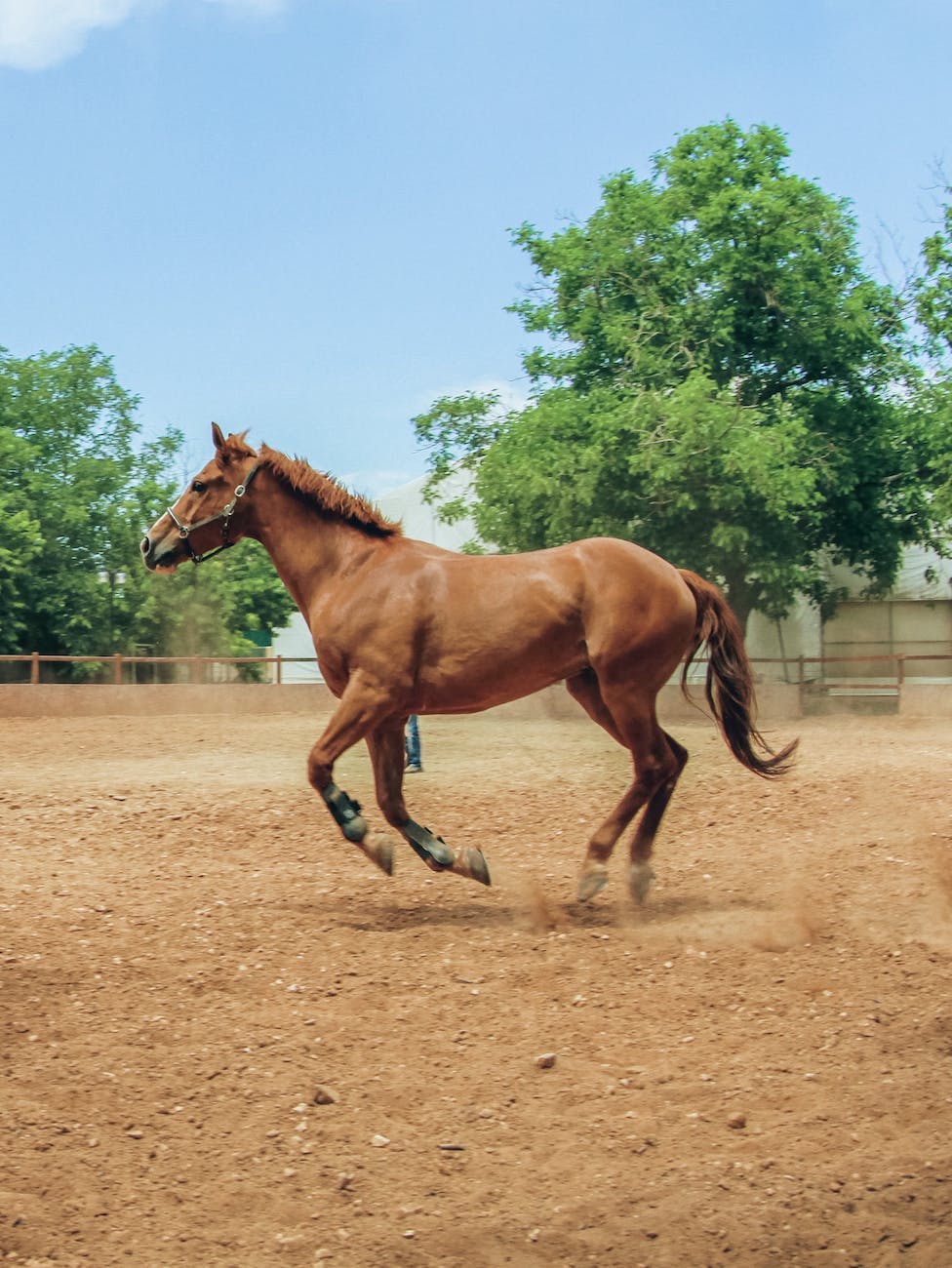Proper nutrition is the foundation of your horse’s well-being. Just like humans, horses require a balanced diet to thrive. Understanding the basics of equine nutrition is essential for maintaining their optimal health and performance. Feeding your horse well requires considerations for things like essential nutrients, feeding schedules, common feeding mistakes, and tips for managing dietary concerns.
Essential Nutrients:
Horses have specific nutritional requirements that must be met for their overall health and vitality, including carbohydrates, proteins, fats, vitamins, and minerals. Carbohydrates, found in forages and grains, provide the necessary energy for your horse’s daily activities. Proteins are crucial for tissue repair and growth, fats serve as an additional energy source, and vitamins and minerals play vital roles in various bodily functions, such as bone development, immune support, and muscle function.

Developing a Well-balanced Diet:
A balanced diet for your horse should start with high-quality feed, as well as hay or grass. Forages are high in fiber and minerals, which aid in digestion and general gut health. Supplementing forage with concentrates like grains or pelleted feeds can help meet extra energy and nutrient needs.
Working with a certified equine nutritionist or veterinarian to assess your horse’s specific nutritional needs based on characteristics such as age, weight, activity level, and any underlying health concerns is essential. They can make individualized recommendations for the best types and amounts of feed.
Feeding Routines:
Establishing a consistent feeding schedule is crucial for your horse’s digestive health. Horses are grazing animals by nature, so providing them with access to forage throughout the day is ideal. If pasture space is available, allow your horse to graze for several hours each day. If you are relying on hay, divide the daily forage into multiple feedings.
When introducing concentrates or supplements, it’s best to split them into several smaller meals to prevent digestive issues and promote nutrient absorption. Avoid sudden changes in diet, as horses have sensitive digestive systems that require gradual transitions.
Common Feeding Mistakes:
Overfeeding can lead to obesity, metabolic disorders, and other health issues. Monitor your horse’s body condition score and adjust the feed accordingly to maintain a healthy weight.
Relying on low-quality forage can also be detrimental to your horse’s health. Poor-quality hay lacks essential nutrients and can lead to nutritional deficiencies. Invest in good-quality hay or consider alternative forage sources if necessary.
Managing Dietary Concerns:
Just like humans, horses can have dietary concerns and allergies. Pay attention to any signs of digestive upset, skin issues, or abnormal behavior that may indicate an adverse reaction to certain feeds or ingredients. Work with your veterinarian to identify and manage any dietary concerns your horse may have.
Conclusion:
Understanding the basics of equine nutrition is vital for responsible horse ownership. By providing a balanced diet that meets your horse’s specific nutritional needs, you can ensure their optimal health, well-being, and performance. Remember to consult with equine nutrition experts, follow feeding schedules, and avoid common feeding mistakes. Your horse will thrive when nourished with the right nutrients and care.

